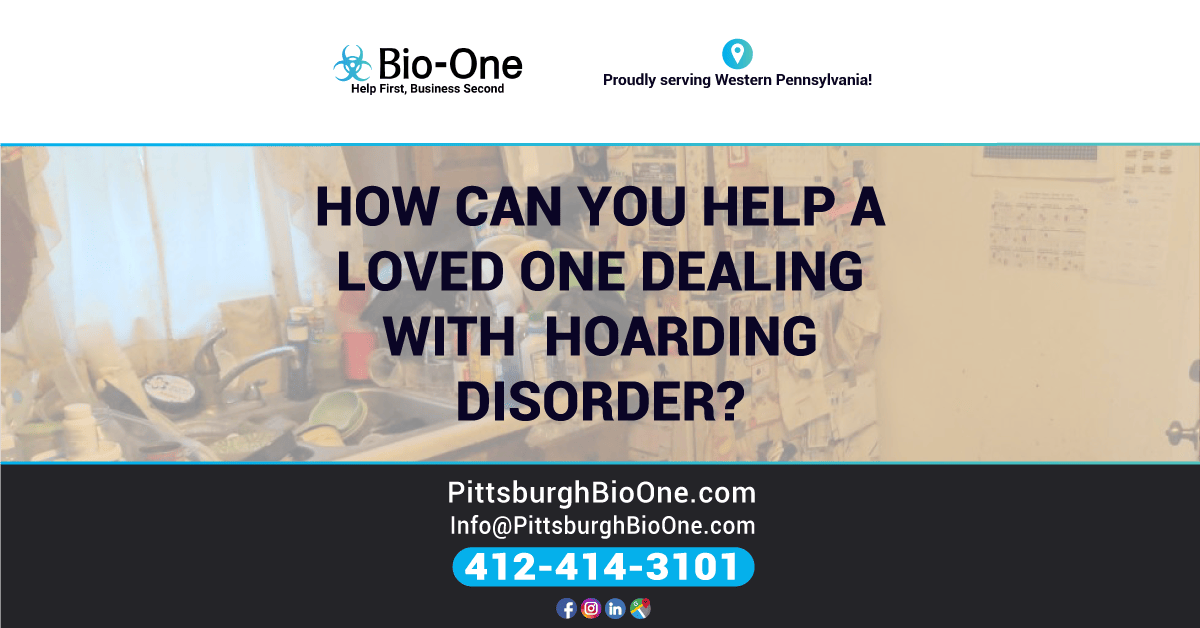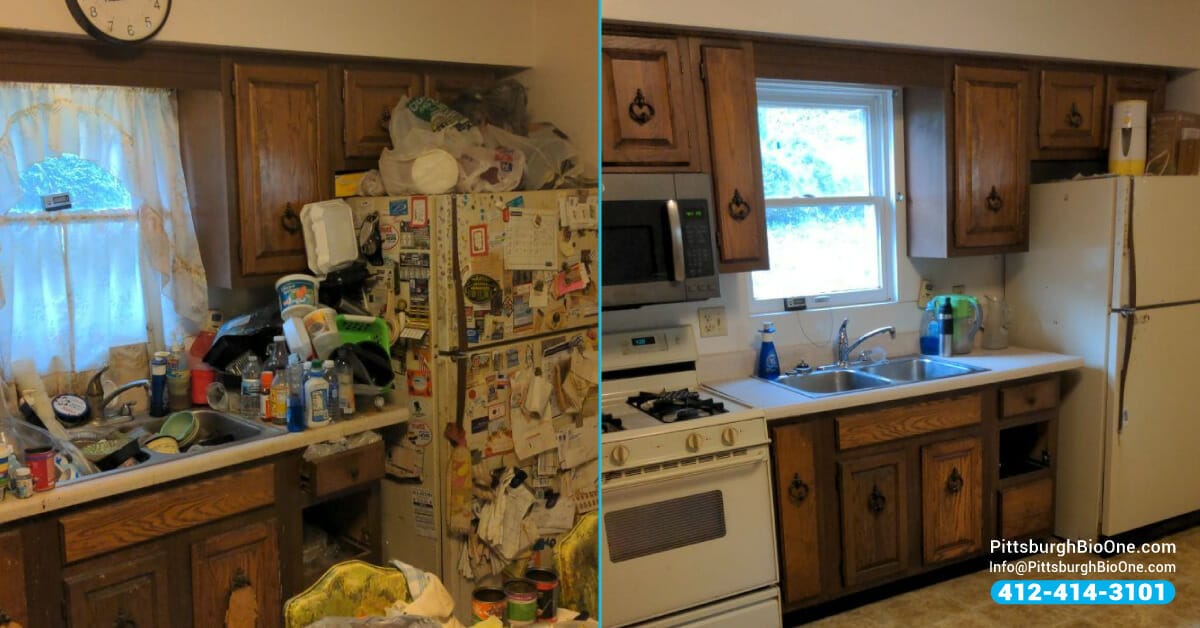
Hoarding disorder is a mental health disorder that can cause much distress for the person suffering from it and their loved ones. If you want to help someone with a hoarding disorder, you may wonder what to do to get started.
It wasn't until May 2013 that the American Psychiatric Association recognized hoarding in the mental disorders category in the Diagnostic and Statistical Manual of Mental Disorders. This has allowed mental health professionals to develop more effective solutions for those dealing with it.
Hoarding disorder is characterized by persistent difficulty discarding or parting with possessions because of a perceived need to save them. A person with hoarding disorder experiences distresses at the thought of getting rid of their belongings, even if those items are useless or of little value. People with hoarding disorder face many challenges and health risk factors from not having a functional living space.
What are some signs that someone may be suffering from hoarding disorder?
If you notice that your loved one is having difficulty getting rid of things, even if they are useless or of little value, it may be a sign of hoarding behavior. Other symptoms include:
- Reluctance or inability to get rid of items.
- Excessive acquisition of things, even if they are unnecessary or have no value.
- Having a house or living space that is cluttered to the point where it can't be used for its intended purpose.
- Inability to use rooms as intended (e.g., a bedroom becomes unusable because it is full of stuff).
- An excessive amount of clutter in the home
- Experiencing distress at the thought of discarding items.
- Difficulty making decisions about what to keep or get rid of.
- Keeping items that appear useless, such as old newspapers or food wrappers.
- Feeling a need to save items because they may be useful in the future.
- Having a strong, unhealthy attachment to possessions.
If you want to help someone with hoarding disorder, the first step is to talk to them about it. It's essential to approach the topic in a non-judgmental way and avoid telling them that they need to get rid of their things. Instead, try to focus on how hoarding disorder impacts their life and those around them.
For example, you could say, "I noticed that your house is very cluttered, and it's difficult to move around. I'm worried about your safety, and I want to help you get the needed assistance."
Why is Hoarding Disorder such a delicate condition?
Hoarding disorder is a delicate condition because it is characterized by an intense fear of losing or discarding items, even if they are of no real value. It often leads to people collecting excessive amounts of clutter in their homes. Hoarding creates difficulties with everyday activities such as cooking, cleaning, and moving around, and it can also lead to social isolation and financial problems.
From a functionality standpoint, a cluttered home can lead to unsafe conditions such as fire hazards, trips and falls, and difficulty accessing essential items like the phone or fire extinguisher.
Those with hoarding disorder often feel a great deal of shame and embarrassment about their condition, making it difficult to seek help. However, treatment is available and can be very effective. If you ever approach a situation like this and wish to help someone with hoarding disorder, know that help is available.
What you can do to help someone with Hoarding Disorder
Hoarding disorder is a delicate condition because it can be challenging for people who suffer from it to let go of things, even if they are cluttered or have garbage. This can cause problems in their homes and their relationships with others. If you have a loved one who is dealing with hoarding disorder, there are some things you can do to help:
Educate yourself about hoarding and other mental health conditions
Before approaching any hoarding situation, it's important to be aware of what dealing with mental illness means. Like most conditions, hoarding may be triggered by a stressful life event, such as the death of a loved one, retirement, or divorce. Be sure to educate yourself on the condition so that you can be as understanding and helpful as possible.
Be supportive and understanding
If your loved one is dealing with hoarding, offer your support. Help them clean up their home if they are willing to do so. If they are not ready to let go of things, just be understanding.
Encourage professional help
If your loved one is struggling to manage their hoarding on their own, encourage them to seek help from a mental health professional. Many resources are available to help people with hoarding disorder, such as therapy, support groups, and medication.
You can also contact a local hoarding task force or cleaning company that specializes in helping people with hoarding disorder. If you want to learn more about Cognitive-behavioral therapy and other forms of treatment for Hoarding Disorder, visit the International OCD Foundation website.
Help them to declutter their home
If your loved one is willing to declutter their home, offer to help them. This can be a difficult and emotional process, so it's important to be patient and understanding. Help them to sort through their belongings and to decide what to keep, donate, or throw away.
Consider hiring a hoarding cleanup company like Bio-One to help you with the process.
Hoarded properties pose multiple health and safety threats, not to mention how emotionally demanding approaching these situations yourself can be.
Bio-One specializes in hoarding cleanup, and our team of experienced and compassionate professionals can help you through every step of the process. We understand how difficult it can be to deal with a hoarding situation, and we're here to help make things as easy and stress-free as possible.
We always work closely with everyone to create a customized plan that fits their unique needs, and we'll do everything we can to ensure the hoard is cleaned up safely and effectively. If you're looking for someone to help you with a hoarding situation, look no further than Bio-One.

Compassion. Experience. Respect.
Bio-One of Pittsburgh is always ready to assist you with any issues arising from unanticipated events, such as death and major injury. Our expert specialists are always ready to assist you in dealing with highly pressurized situations that may be emotionally and physically draining, allowing you to focus on other vital activities while healing in a sanitary environment. Locally owned and operated, we provide the following:
Biohazard remediation and decontamination services
- Crime scene cleaning
- Blood spill cleanup
- Homicide and suicide cleanup
- Unattended death cleanup
- Biohazard cleanup
- Feces and bodily fluids cleanup
- Odor removal
- Virus Disinfection
- Fentanyl cleanup
- Tear gas cleanup
- Emergency vehicle decontamination
- Sewage backup cleanup
- Medical Waste disposal
Hoarding cleanup services
- Hoarding cleanup
- Animal hoarding cleanup
- Junk removal
- Deep cleanup
- Gross filth cleanup
- Hazardous waste removal
- Homeless encampment cleanup
Help First, Business Second!
Bio-One works closely with victim support centers nationwide and local authorities, communities, emergency services personnel, hoarding task forces, apartment communities, insurance companies, and other organizations to accomplish each customer's most efficient and superior service possible.
Many crime scene cleanup companies may face unexpected, unfortunate life events. Still, Bio-One is the right choice because of our expertise and profoundly caring and discreet specialists.
We are proud members of the NAPO Pittsburgh - National Association of Productivity & Organizing Professionals!
Serving the Greater Pittsburgh / Western Pennsylvania Area!
Bio-One of Pittsburgh serves the following Pennsylvania counties: Allegheny County, Washington County, Beaver County, Butler County, Armstrong County, Westmoreland County, Lawrence County, Greene County, Fayette County, and Mercer County.
We also serve the following cities and surrounding communities: Allison Park, Aspinwall, Avalon, Bairdford, Bakerstown, Baldwin, Bellevue, Ben Avon, Ben Avon Heights, Bethel Park, Blawnox, Boston, Brackenridge, Braddock, Braddock Hills, Bradford Woods, Brentwood, Buena Vista, Bunola, Carnegie, Castle Shannon, Cheswick, Churchill, Clairton, Coulter, Crafton, Creighton, Crescent, Cuddy Curtisville, Dormont, Dravosburg, Duquesne, East Mc Keesport, East Mckeesport, East Pittsburgh, Elizabeth, Emsworth, Etna, Forest Hills, Fox Chapel, Glassport, Glenshawock, Harwick, Heidelberg, Homestead, Homewood, Indianola, Ingomar, Ingram, Jefferson Hills, Leetsdale, McKees Rocks, Millvale, Monroeville, Morgan, Mount Oliver, Munhall, Natrona Heights, Noblestown, Oakdale, Oakland, Oakland (borough), Oakmont, Pitcairn, Pleasant Hills, Plum, Port Vue, Presto, Rankin, Rennerdale, Rural Ridge, Russellton, Sharpsburg, South Park, Springdale, Sturgeon, Swissvale, Tarentum, Turtle Creek, Verona, Wall, Warrendale, West Elizabeth, Wes Homestead, West Mifflin, West View, Wexford, Whitaker, Wildwood, Wilkinsburg, and Wilmerding!
Our technicians are available 24/7/365! Contact us at 412-414-3101.


